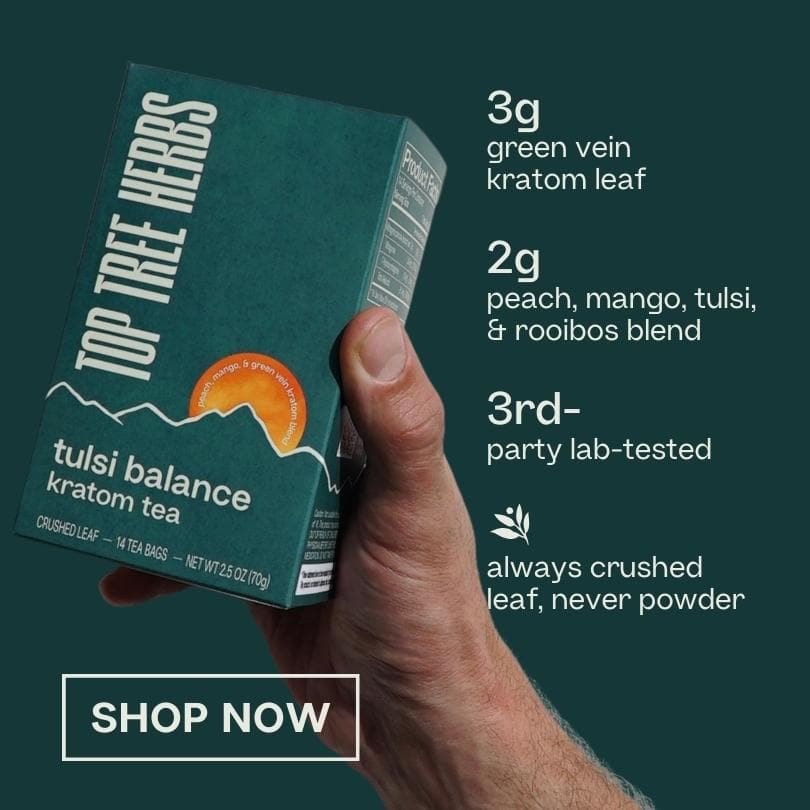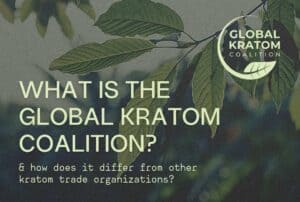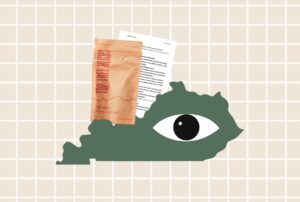This year, the Czech Republic initiated a groundbreaking legislative move in an effort to regulate kratom, CBD, and other botanicals and synthetic compounds. The new Czech kratom legislation is called the Psychomodulating Substances Act. If passed, this act would create an entirely new category within the food and drug space for botanicals and other products that currently exist in a legal gray area.
Why does Czechia Want to Regulate Kratom?
At the moment, kratom is soaring in popularity in the Czech Republic. It’s sold in many vape and tobacco shops alongside synthetic and inebriating derivatives of CBD.
As the popularity grows, enterprising kratom vendors have started installing vending machines that doll out kratom to all who want it, regardless of age. Children have thus been able to purchase kratom and THC-like products without any oversight or education.

Proponents of the Psychomodulating Substances Act are ultimately working to enhance consumer safety and public health, which they believe is not adequately supported by the country’s current legislation and enforcement mechanisms. The Czech government is thus paving the way for proper regulation of kratom, along with numerous other psychoactive substances. These include low-THC cannabis, HHC, kanna, kava kava, and other botanicals and synthetic compounds.
Through the proposal of the Psychomodulating Substances Act the Czech government may set a precedent for improved kratom legislation across the globe.
So let’s unravel the nuances of the Czech kratom law, analyzing its place in kratom regulation across Europe and drawing parallels with the American Kratom Consumer Protection Act (KCPA) that numerous individual U.S. states have adopted.
A Glimpse into Czech Drug Laws: the Journey to Decriminalization in Czechia
To fully appreciate the Czech Republic’s groundbreaking approach to regulating kratom, we first have to delve deeper into the government’s past approach to drug regulation. Since emerging as a sovereign nation from Czechoslovakia after the fall of communism, the Czech Republic has significantly transformed its drug policies.
Czechia has taken significant steps toward reducing drug-related harm in the past two decades. In 2010, the nation decriminalized the possession of small amounts of various drugs for personal use. Thus, even before the introduction of the Psychomodulating Substance Act, Czechia stood out within the typically prohibitionist landscape of international drug laws.
In Czechia, possession of the following drugs—in limited quantities—is currently decriminalized:
- Marijuana: up to 15 grams, or cultivation of up to 5 plants
- Hashish: up to 5 grams
- Magic Mushrooms: up to 40 pieces of magic mushrooms
- Peyote: up to 5 plants
- LSD: up to 5 tablets
- Ecstasy (MDMA): up to 4 tablets or 0.4 grams
- Amphetamine: up to 2 grams
- Methamphetamine: up to 2 grams
- Heroin: up to 1.5 grams
- Cocaine: up to 1 gram
- Khat: up to 5 plants
Possession within these limits is still illegal. However, possession is considered a misdemeanor, not a criminal offense. Importantly, this reduces stigmatization of people found to be in possession of drugs: if convicted, they would not be weighed down by a criminal record in the years following.
In addition to decriminalizing the substances listed above, the 2010 law also set regulatory measures for alcohol, tobacco, and gambling. The responsibility of monitoring these substances and activities was delegated to the Czech Secretariat of the Government Council for Drug Policy Coordination (GCDPC).
Yet while decriminalization in Czechia was a significant improvement upon previous laws, the decriminalization framework is still flawed.
Pros and Cons of Establishing Decriminalization Laws
On one hand, decriminalization has had a positive impact on public health in Czechia and in other countries. Decriminalization puts a greater emphasis on rehabilitation rather than on punishment, which fosters a healthier society. Since 2010, Czechia has seen a decline in drug-related crimes, a decrease in HIV transmission rates, and other general improvements to public health.
On the other hand, decriminalization doesn’t protect and benefit everyone.
Decriminalization Laws Don’t Protect Distributors or Ensure Safe Products
Firstly, only possession of drugs is decriminalized, not drug distribution. So distributors of drugs in Czechia are still subject to criminal punishment. Thus, people who want to profit from making and/or distributing drugs have put their freedom on the line to do so.
Secondly, decriminalization doesn’t innately ensure that people can access a clean supply of drugs. Because distribution is still a crime, distributors must work underground. Such black markets have looser quality standards than an above-board, regulated industries. As a result, if there is an adulterant or contaminant in the products, the consumer has no way of knowing. Some consumers may be able to conduct analytical tests themselves, but this is simply out of the question for most.
Without regulation and enforcement, distributors aren’t required to give customers detailed information (if any) about the substances they distribute. This is one of the most insidious facets of prohibition, as it leads to a serious lack of education and transparency for consumers.
Decriminalization Doesn’t Follow Logical Systems of Drug Classification
Lastly, decriminalization laws in Czechia and beyond do not typically follow a scientific system for classifying substances. In the Czech system and others, compounds like cannabis, methamphetamine, PCP, and heroin are decriminalized but not legalized. Yet alcohol, tobacco, and caffeine have been legalized and embraced in Czech culture and most cultures across the globe. The legal statuses of these substances, as well as their degree of accessibility and associated level of stigma, are not determined according to their relative potential for individual or public harm.
Instead, a drug’s legal status and degree of cultural acceptance is often a result of sociopolitical factors. From international trade economics to xenophobia, there are many injurious influences on a drug’s degree of normalization that are entirely unrelated to its pharmacodynamics.
This illogical manner of classifying substances has historically caused an erosion of community trust in public institutions. Unfortunately, such irrationality is hard to escape; all United Nations member states are treaty-bound to follow the 1971 UN Convention on Psychotropic Substances, which set the level of scheduling of a wide range of compounds.
Why Can’t The Czech Republic Legalize Drugs?
Before we return to the topic of the Psychomodulatory Substances Act, there’s a question we should answer that might have crossed your mind: why doesn’t the Czech Republic fully legalize all psychotropic substances instead of just decriminalizing them?
As a matter of fact, why hasn’t any country legalized drugs and ended the widespread War on Drugs? Such questions arise frequently within the nuanced landscape of global drug policy.
To get to the answer, one must delve into the intricate web of international agreements and conventions that guide the individual legislative frameworks of UN member states, including the Czech Republic.
“…if Czechia fully legalized psychotropic substances, they would be directly contradicting the regulations enshrined in the UN convention. This could isolate the country from international diplomacy and open up a Pandora’s box of complex legal and trade challenges.”
The pivotal directive in this scenario is the UN’s Convention on Psychotropic Substances, mentioned above. Established in 1971, the Convention is regulatory framework that was significantly shaped by the US’s stringent stance on drug control at that time. This convention mandates a collaborative international effort towards controlling and supervising the production and distribution of a defined list of psychotropic substances and their chemical precursors.
Given this context, if Czechia fully legalized psychotropic substances, they would be directly contradicting the regulations enshrined in the UN convention. This could isolate the country from international diplomacy and open up a Pandora’s box of complex legal and trade challenges.
The Czech Compromise
The Czech Republic thus adopted the strategy of decriminalization—a compromise. Decriminalization is a middle ground that aligns with harm-reduction philosophy while still honoring international commitments. By decriminalizing the possession of small quantities of drugs for personal use, the nation acknowledges the realities of drug use and seeks to reduce the harms associated with stringent prohibitionist policies.
Decriminalization focuses on public health rather than criminal justice, thereby fostering a society where individuals are encouraged to seek help without the looming fear of legal ramifications. It strategically balances the need to adhere to international norms and the desire to advocate for a rational, evidence-based policy rooted in empathy.
Further, it makes a bold statement in the global dialogue on drug policy, and paves the way for even more compassionate, sensible approaches to be undertaken in the future.
Kratom’s Narrow Escape from Global Prohibition
Decoding the Psychomodulating Substances Act
By introducing the category of psychomodulatory substances, Czechia is breaking with the norms of long-standing classification systems used in other UN member states.
What would the Psychomodulating Substances Act do? Two key provisions of the Psychomodulating Substances Act are:
- Age restrictions: The legislation delineates a strict age barrier to prevent minors from buying psychomodulating products.
- Quality control: Every kratom product on sale must meet strict requirements for safety and quality. These quality control mechanisms are analogous to those required for most conventional food products.
- Licensing: Companies or other bodies importing, distributing, or selling psychomodulatory substances in a retail setting would have to obtain a license to do so.
- Restrictions on advertising: businesses would not be able to advertise kratom or any psychomodulatory substances to potential consumers.
The Act is designed to balance safety protocols with accessibility. It steers clear of classifying kratom as a food, supplement, or drug—the only categories acknowledged and regulated by the U.S. Food and Drug Administration (FDA), the U.S. Drug Enforcement Administration (DEA), or the United Nations—but still creates a regulated market in order to enhance consumer safety.
This skillful maneuver allows for the spirit of Czech freedom and self-determination to live on, while ensuring that the “psychomodulating substances” on the market adhere to certain quality standards. They are thus able to avoid many of the negative pitfalls of simple decriminalization.
Czech Kratom Law vs. American Kratom Laws: the Psychomodulating Substances Act and the Kratom Consumer Protection Act
The provisions in the Czech law are quite similar to the measures some U.S. states have put in place to regulate kratom. In the U.S., this hasn’t yet occurred at the federal level. Rather, it’s a state-by-state effort that’s typically accomplished through passing either the Kratom Consumer Protection Act or a similar bill.
Like the Czech initiative, the American Kratom Consumer Protection Act envisages a well-regulated market for kratom without placing it within one of the strict categories delineated by the FDA or DEA. In some states, like West Virginia, kratom regulation is similarly lumped together with regulations on hemp products or other botanicals.
In essence, both the KCPA and the Psychomodulatory Substances Act aim to foster a secure environment for consumers by promoting a structured and above-board kratom market.
Kratom Legality in Europe: The Bigger Picture
With the Czech Republic breaking new ground, it begs the question: where does this leave kratom throughout the rest of Europe?
“Kratom Europe” web searches have spiked, and it’s evident that there is a burgeoning interest in kratom throughout the continent.
European Countries Where Kratom is Currently Legal
- Albania
- Austria
- Belgium
- Bosnia
- Croatia
- Czech Republic
- Greece
- Hungary
- Kosovo
- Malta
- Montenegro
- Netherlands
- North Macedonia
- Spain
- Ukraine
Countries Where Kratom is Legal Under Specific Conditions
- Cyprus: considered a psychotropic substance since April 2021
- Denmark: regulated as a controlled substance
- Finland: regulated as a controlled substance
- Germany: legal if not intended for human consumption
- Norway: classified as a controlled substance
- Portugal: controlled psychoactive substance since 2013
- Sweden: classified as a controlled substance
Countries in Europe Where Kratom is Illegal
- Belarus
- Bulgaria: illegal since 2011
- Estonia: illegal since 2015
- France: illegal since January 2020
- Iceland
- Ireland: illegal since 2017
- Italy: illegal since August 2016
- Latvia
- Lithuania: illegal since 2008
- Luxembourg: illegal since 2012
- Moldova: illegal since 2010
- Poland: illegal since 2009
- Romania: illegal since 2010
- Russia: illegal since 2011
- Slovakia: illegal since 2021
- Slovenia: illegal since January 2019
- Switzerland: illegal since October 2017
- Turkey: illegal since 2014
There are also countries like Serbia which do not provide any defined legal status for kratom, which leaves it in a gray area. Similarly, kratom is left in a gray area even in European countries that have legalized kratom but added conditions like a ban on the sale of kratom for human consumption. This has resulted in vendors selling kratom as a “garden fertilizer” or “makeup powder” with no guidelines for consumers as to how they should properly and safely consume the kratom products.
How the Psychomodulating Substances Act Influences The Path Forward
The Czech Psychomodulating Substances Act stands as a testament to the nation’s forward-thinking drug policy. As the Czech Republic pioneers a balanced path in international kratom laws, it sets a benchmark for other nations, potentially influencing a global shift in kratom legislation.
The Act is a sign—a beacon of hope—that people are beginning to envision an objective approach to kratom policy instead of a criminalizing and stigmatizing one. It heralds a future where kratom and other botanicals are accessible, safe, and regulated, fostering a healthier society for all.
As we continue to monitor developments in the Czech kratom law landscape, it remains pivotal for consumers, stakeholders, and policymakers alike to foster a dialogue grounded in evidence and empathy, with the overarching goal of enhancing societal wellbeing. Let’s watch this space as history unfolds and a new chapter in international kratom regulation begins.






